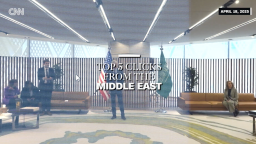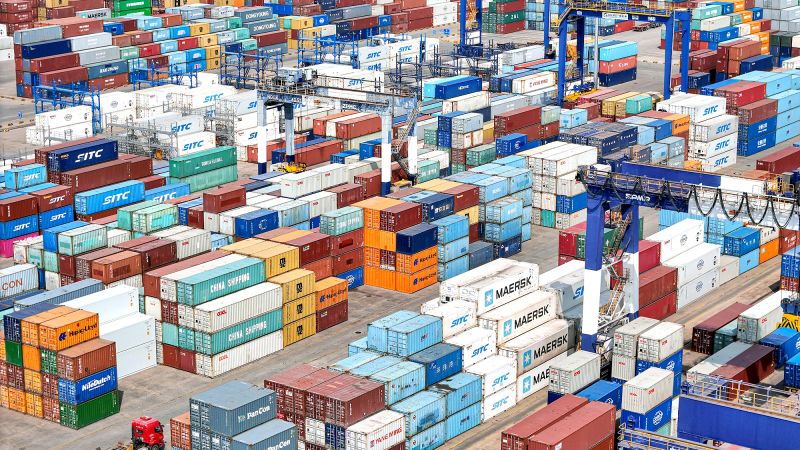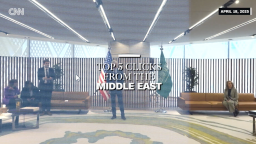## From the Skies to the Showdown: A Boeing Jet’s Flight Home Highlights the Tariffs That Gripped the World Remember back in 2018 when the world felt on the brink? Trade wars raged, tech giants clashed, and the very fabric of globalization seemed to be fraying? Well, the echoes of that battle still reverberate, and we’ve got a story that takes us right to the front lines. A Boeing jet, once a symbol of American manufacturing prowess, has just returned to US soil after a long journey through the heart of a trade war sparked by then-president Trump. This isn’t just a tale about airplanes; it’s a reminder of the global domino effect caused by political decisions, and how every player, even giants like Boeing, gets caught in the crossfire. Buckle up, gamers, because this story is about to take off.
The Escalating Trade War: Trump’s 145% Tariff and China’s Retaliation

The trade war between the United States and China has taken a dramatic turn, escalating from a series of targeted tariffs to a full-blown exchange of punitive measures. In a move that sent shockwaves through global markets, President Donald Trump announced a significant increase in tariffs on Chinese imports, raising the baseline rate to 145%. This action came as a direct response to perceived unfair trade practices by China, including intellectual property theft and subsidies for domestic industries.
China, in a swift and decisive countermove, retaliated with its own tariffs, imposing a 125% tariff on a range of U.S. goods. This tit-for-tat exchange has created a volatile and unpredictable environment for businesses operating in both countries, disrupting supply chains, increasing costs, and threatening economic growth.

The Crushing Cost: $55 Million Jets and the Burden of Duties
The impact of these escalating tariffs is being felt acutely in the aerospace industry. A prime example is the Boeing 737 MAX, a widely popular commercial aircraft. The return of a 737 MAX jet intended for China’s Xiamen Airlines to Boeing’s U.S. production hub in Seattle underscores the tangible consequences of the trade war.
The aircraft, with a market value of approximately $55 million, was destined to be delivered to Xiamen Airlines but was forced to return due to the prohibitive tariffs imposed on both the aircraft and its components. This incident highlights the significant financial burden that tariffs place on businesses, potentially crippling operations and undermining international trade.

Delivering Disruption: Impact on Aerospace and Aviation
The Boeing 737 MAX episode is emblematic of the broader disruption caused by the trade war in the aerospace and aviation sectors. The breakdown of the decades-old duty-free status for aircraft deliveries has created immense uncertainty and logistical challenges for airlines and manufacturers alike.
Airlines are facing difficult choices: accept the high cost of importing aircraft or delay deliveries, potentially disrupting their expansion plans and operational efficiency. Manufacturers, like Boeing, are grappling with supply chain disruptions, increased production costs, and the potential for lost sales in key markets.

Beyond the Boeing: Wider Implications of the Trade War
The trade war between the U.S. and China is not confined to the aerospace industry; its ramifications extend far beyond, affecting global markets, trade dynamics, and the future of global economic stability.
Global Markets React: Stock Plummets and Growing Economic Fears
The escalating trade tensions have sent shockwaves through global financial markets. Stock markets have experienced sharp declines, reflecting investor anxiety about the potential for a global recession. The Dow Jones Industrial Average plummeted more than 1,000 points, or 2.7%, on Friday following China’s announcement of retaliatory tariffs. The broader S&P 500 fell more than 3%, while the tech-heavy Nasdaq Composite dropped 3.5%. European and UK stock markets also suffered significant losses, exceeding 3% on Friday, marking their worst performance in years.
This dramatic market decline underscores the interconnectedness of the global economy and the significant financial risks associated with escalating trade tensions.
Shifting Trade Dynamics: Breaking the Decades-Old Duty-Free Status
The trade war has fundamentally altered the dynamics of global trade, particularly in the aerospace sector. The decades-long duty-free status enjoyed by aircraft manufacturers and airlines has been shattered, leading to increased costs, logistical complexities, and reduced predictability.
This shift away from duty-free arrangements has far-reaching implications for the global aviation industry, potentially impacting investment, innovation, and the overall competitiveness of the sector.
The Future of Aviation: A World on Hold?
The escalating trade war casts a shadow of uncertainty over the future of aviation. Airlines are facing difficult decisions, balancing the need for new aircraft to meet growing passenger demand with the financial burden of tariffs and the logistical complexities of international trade.
Manufacturers like Boeing are struggling to navigate the shifting landscape, seeking new markets and adjusting production strategies to mitigate the impact of trade tensions. The outcome of this trade war will have a profound impact on the global aviation industry, shaping its trajectory for years to come.
Conclusion
A Chilling Prelude to a New Era in Global Trade: Boeing’s Ordeal in the Trump Tariff War
In a striking development that underscores the far-reaching consequences of President Trump’s tariff war, a Boeing commercial jet has finally made its way back to the United States after being stranded in China for over a month. The aircraft’s arduous journey serves as a stark reminder of the escalating tensions between the world’s two largest economies and the devastating impact of Trump’s protectionist policies on the global aviation industry. As our article detailed, the Boeing jet was initially grounded due to a dispute over a $2.5 billion compensation claim by a Chinese company, which had been ordered by a US court to pay the damages. The standoff ultimately led to a 30-day wait for the aircraft’s return, during which time it was forced to remain on the ground, awaiting a resolution.
The Boeing jet’s ordeal highlights the profound implications of Trump’s tariff war on international trade and commerce. As the world’s largest economies continue to engage in a game of economic brinksmanship, businesses and industries are being forced to navigate treacherous waters, with far-reaching consequences for global supply chains, economic growth, and international relations. The aviation industry, in particular, stands to suffer significantly, with airlines and manufacturers struggling to adapt to the rapidly shifting landscape. The significance of this development cannot be overstated, as it marks a new era in global trade, where protectionism and nationalism are increasingly taking precedence over free market principles.
As the Boeing jet’s journey comes to a close, one cannot help but wonder what the future holds for global trade and commerce. Will the recent developments mark a turning point in the world’s economic trajectory, or will the cycle of retaliation and counter-retaliation continue to escalate? The world waits with bated breath as the titans of global trade engage in a high-stakes game of economic one-upmanship. One thing is certain, however: the consequences of Trump’s tariff war will be felt for years to come, and the Boeing jet’s ordeal serves as a chilling prelude to a new era in global trade.